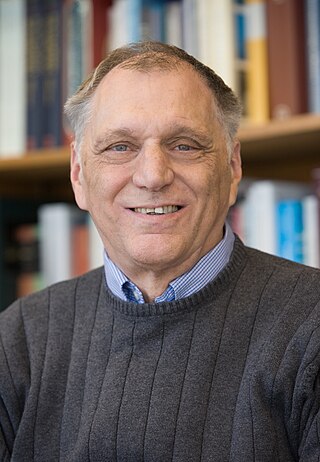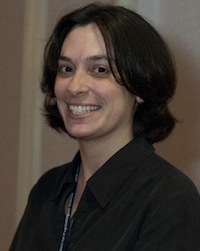Robert Goldstone is a Distinguished Professor of psychology and cognitive science at Indiana University in Bloomington,Indiana. His research interests include concept learning and representation,perceptual learning,collective behavior,and computational modeling of human cognition. He has developed and empirically tested neural network models that simultaneously learn new perceptual and conceptual representations,with the learned concepts both affecting and being affected by perception. He has also developed computational models of how groups of people compete for resources,cooperate to solve problems,exchange information and innovations,and form coalitions.

Claude Mason Steele is a social psychologist and emeritus professor at Stanford University,where he is the I. James Quillen Endowed Dean,Emeritus at the Stanford Graduate School of Education,and Lucie Stern Professor in the Social Sciences,Emeritus.
Jamshed Bharucha is an Indian-American cognitive neuroscientist who has served in leadership roles in higher education. He is the Founding Vice Chancellor of Sai University,Chennai,and is a member of the Board of Advisors of India's International Movement to Unite Nations (I.I.M.U.N.).

Michael I. Posner is an American psychologist who is a researcher in the field of attention,and the editor of numerous cognitive and neuroscience compilations. He is emeritus professor of psychology at the University of Oregon,and an adjunct professor at the Weill Medical College in New York. A Review of General Psychology survey,published in 2002,ranked Posner as the 56th most cited psychologist of the 20th century.
Todd Shields is a political scientist at the University of Arkansas,where he is Dean of the J. William Fulbright College of Arts and Sciences. He completed his B.A. in psychology and political science at Miami University in 1990,and received his M.A. and Ph.D. from the University of Kentucky in 1991 and 1994. As Dean of Fulbright College,he leads the largest college in the university,home to over 8,500 students pursuing degrees in degrees in the fine arts,humanities,natural sciences and social sciences. Shields led the development of the third accredited collegiate School within the College,the School of Art launched in 2017 with the support of a $120 million gift from the Walton Family Charitable Support Foundation. The School's interdisciplinary outreach was enhanced by the Windmere Foundation's gifts in 2017 and 2021,totaling $70 million,to create and expand the Windgate Art and Design District,an off-campus built community in the City of Fayetteville,to serve as a hub for student and faculty artists and designers.

Richard C. McCarty is a professor of psychology and the former provost and vice chancellor of academic affairs at Vanderbilt University in Nashville,Tennessee. Prior to serving as provost,he was dean of Vanderbilt's College of Arts and Science.

John Terrence Cacioppo was the Tiffany and Margaret Blake Distinguished Service Professor at the University of Chicago. He founded the University of Chicago Center for Cognitive and Social Neuroscience and was the director of the Arete Initiative of the Office of the Vice President for Research and National Laboratories at the University of Chicago. He co-founded the field of social neuroscience and was member of the department of psychology,department of psychiatry and behavioral neuroscience,and the college until his death in March 2018.

The Princeton University Department of Psychology,located in Peretsman-Scully Hall,is an academic department of Princeton University in Princeton,New Jersey. For over a century,the department has been one of the most notable psychology departments in the country. It has been home to psychologists who have made well-known scientific discoveries in the fields of psychology and neuroscience.

Gary Berntson is an emeritus professor at Ohio State University with appointments in the departments of psychology,psychiatry and pediatrics. He is an expert in psychophysiology,neuroscience,biological psychology,and with his colleague John Cacioppo,a founding father of social neuroscience. His research attempts to elucidate the functional organization of brain mechanisms underlying behavioral and affective processes,with a special emphasis on social cognition.

Charles Ransom Gallistel is an Emeritus Professor of Psychology at Rutgers University. He is an expert in the cognitive processes of learning and memory,using animal models to carry out research on these topics. Gallistel is married to fellow psychologist Rochel Gelman. Prior to joining the Rutgers faculty he held positions at the University of Pennsylvania,where he was chair of the psychology department and Bernard L. &Ida E. Grossman Term Professor,and at the University of California,Los Angeles.

Larry Ryan Squire is a professor of psychiatry,neurosciences,and psychology at the University of California,San Diego,and a Senior Research Career Scientist at the Veterans Affairs Medical Center,San Diego. He is a leading investigator of the neurological bases of memory,which he studies using animal models and human patients with memory impairment.
Charlie Collins is a businessman and Republican politician in Arkansas. Collins served four terms in the Arkansas House of Representatives for District 84,which encompasses part of Washington County near Fayetteville. In 2014,Collins briefly sought the Republican nomination for Lieutenant Governor of Arkansas. Following reelection in 2016,Collins sponsored legislation to allow anyone over age 21 to carry guns on college campuses and other public places. Controversial among the University of Arkansas community within District 84,Collins lost his reelection bid in 2018.
Sharon Stephens Brehm was an American psychologist who served as president of the American Psychological Association (APA). She was a professor of psychology at the University of Kansas. She held administrative roles at Binghamton University and Ohio University,before becoming chancellor of Indiana University Bloomington.
Richard Frederick Thompson was an American behavioral neuroscientist. He was the William M. Keck Professor of Psychology and Biological Sciences at the University of Southern California,with a parallel appointment as professor of neurology. Thompson was known for his groundbreaking work on learning and memory and his work on the cerebellum was seminal in showing its implication in classical conditioning. During his career,he served as editor-in-chief of the scientific journals Physiological Psychology,Journal of Comparative and Physiological Psychology,and Behavioral Neuroscience.

Dr. Sharon Thompson-Schill is the Christopher H. Browne Distinguished Professor of Psychology at the University of Pennsylvania in Philadelphia,Pennsylvania. She is an expert on the biological basis of human cognitive systems,including language,memory,perception,and cognitive control,and the relationships between these systems. As of 2019,she has produced more than 150 scientific publications,which collectively have been cited over 13,700 times.
Elizabeth Kensinger is Professor of Psychology and Neuroscience at Boston College. She is known for her research on emotion and memory over the human lifespan. She is the author of the book Emotional Memory Across the Adult Lifespan, which describes the selectivity of memory,i.e.,how events infused with personal significance and emotion are much more memorable than nonemotional events. This book provides an overview of research on the cognitive and neural mechanisms underlying the formation and retrieval of emotional memories. Kensinger is co-author of a second book How Does Emotion Affect Attention and Memory? Attentional Capture,Tunnel Memory,and the Implications for Posttraumatic Stress Disorder with Katherine Mickley Steinmetz,which highlights the roles of emotion in determining what people pay attention to and later remember.
Kristen A. Lindquist is a psychologist and affective neuroscientist whose research focuses on language,emotions,and culture. Lindquist is known for her work on emotion words,suggesting that when speakers of different languages talk about common emotions like love,they may not mean the same thing. Her findings run counter to the view that there are universal emotions that are experienced the same across cultures. Lindquist is Associate Professor of Psychology and Neuroscience and Director of Carolina Affective Science Lab at the University of North Carolina,Chapel Hill.
Erica Glasper is an American behavioral neuroscientist. Her laboratory observed the first alterations in hippocampal dendritic morphology and behavioral function induced by social bonding and fatherhood in California mice.
Caroline Palmer is the Canada Research Chair in Cognitive Neuroscience of Performance and Professor in the Department of Psychology at McGill University in Montreal,Canada. She is also an Associate Faculty Member in the Schulich School of Music at McGill. Her research in cognitive science addresses the behavioural and neural foundations that make it possible for people to produce auditory sequences such as playing a musical instrument or speaking. Palmer has developed and empirically tested computational models of how people perceive and produce auditory sequences,and how they coordinate their actions with others.









